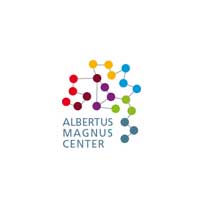Apply for admission to a doctoral program
The following explanations provide a general overview for those interested in doing a doctorate. The procedures may vary depending on the Faculty, subject area and type of doctoral programme.
The specific application requirements and procedures can be found on the respective websites of the doctoral programmes. You can also find the application deadlines and job vacancies there. You can also find job offers on the job portal of the University of Cologne.
Please note that the Albertus Magnus Center cannot accept or forward applications.
The majority of doctoral programmes organize selection procedures in two rounds. A first selection is made on the basis of the written application. Suitable candidates are invited to interviews, symposia or summer schools for the final selection.
Tips for a successful application
First check the website of the respective doctoral programme to see which documents are required, in which language and whether they must be submitted by post or electronically. The usual application documents include a CV, degree certificates (university, training, school), a letter of motivation and/or a brief description of the planned dissertation project (the so-called exposé or project proposal).
In some cases, a summary of previous academic work is also requested. One or more letters of recommendation and language certificates (German or English) are also frequently requested. An outstanding degree in the relevant subject area is usually a prerequisite.
Letter of motivation
In the letter of motivation, you explain why you are a suitable candidate for the advertised position or the doctoral programme. You should therefore find out in advance what goals the doctoral programme is pursuing and what subject-related and personal selection criteria apply. Many doctoral programmes require interdisciplinary or international projects. You should therefore consider how your planned project fits into the programme, fits in with existing main research areas and how it is linked to other research topics and projects.
Project proposal (also called exposé, research proposal, statement of purpose)
This is where you outline your planned dissertation project. If required, the exposé is the key element of your application. Take the time to present the research question, approach and objectives of your academic work clearly and comprehensibly.
Tips for a successful interview
If your application documents are convincing, you will be invited to an interview with a selection committee. Be prepared to give a short oral presentation of your project and answer specific questions about its feasibility and your motivation.
The selection committees are often multidisciplinary, so you should also expect to be asked more general questions about your approach and subject-specific context. You should also ask questions about the programme itself, such as the range of offered courses or support for conference and research trips. Other selection criteria can be symposia and summer schools (especially in the natural and life sciences). At such events, you can present and discuss your previous research work (e.g. Master's thesis, project work) or your project proposal for the dissertation.
